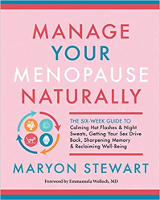
Image from Pixabay
Quiz: What’s Your Risk of Heart Disease?
-
Do you smoke?
-
Do you exercise less than three or four times a week?
-
Do you eat a lot of fatty foods, such as fried foods, including French fries, cheese, hamburgers, and ice cream?
-
Do you consume more than two servings of red meat each week?
Get The Latest By Email
-
Are you overweight?
-
Do you have high blood pressure?
-
Is your cholesterol count high?
-
Do you drink more than one five-ounce glass of wine per day (or the equivalent in other alcoholic drinks)?
-
Do you eat oily fish less than twice a week?
-
Do you eat fewer than five portions of fruit and vegetables a day?
If you answered yes to more than three questions, I would highly recommend that you follow the guidelines in this chapter to switch to a heart-friendly lifestyle.
Action Plan:
1. Follow a Healthy-Heart Diet
Saturated fats: We have known for years that meat and dairy products contain saturated fats (hard fats) that can contribute to atherosclerosis, so these foods should be eaten in moderation. Also harmful are trans fats, many of which are chemically altered types of fat created from polyunsaturated fats such as sunflower oil. Trans fats, used as ingredients in processed foods such as burgers, sausages, pies, cakes, and cookies, were banned from food production in the US and Canada in 2018 but are still permitted in some other countries, including the UK and Australia.
Diet, Exercise, and Meditation: According to research as far back as 1990, diet can be as effective in combating atherosclerosis as drugs or surgery. In the study, a group of people with severely blocked arteries went on a very low-fat vegetarian diet along with an exercise and meditation program, at the end of which the plaque in their arteries was found to be reduced.
Isoflavones: Research suggests that isoflavones can reduce the risk of coronary heart disease. A meta-analysis of the effects of soy protein containing isoflavones on blood lipids showed beneficial reductions in serum total cholesterol, LDL cholesterol, and triglycerides, with increases in beneficial HDL cholesterol.
Monounsaturated fats and Omega-3: Not all fats are harmful. Monounsaturated fats, found in olive oil, and the omega-3 essential fatty acids (found in flaxseeds, pumpkin, and walnuts as alpha-linolenic acid, or ALA) need to be included in the diet. The body converts ALA to eicosapentaenoic acid (EPA) and docosahexaenoic acid (DHA), found naturally in oily fish, to produce anti-inflammatory prostaglandins.
Oily fish: Most experts now agree that to reduce your risk of heart disease, you need to limit your intake of saturated animal fats, increase your intake of omega-3 EFAs, and include heart-healthy monounsaturated fats, such as those found in virgin olive oil, in your diet. You should also try to eat oily fish, such as salmon, mackerel, herring, sardines, and anchovies at least twice a week. The omega-3 EFAs in these fish can help protect against heart and circulatory disease.
Coconut oil: Coconut oil has recently been widely promoted as a healthy alternative to other cooking fats. While there is little robust research to justify some of the health claims made about it, it is true that coconut oil is a medium-chain triglyceride (MCT), which means that it’s used as an energy source, and therefore less is stored as fat. However, it also contains saturated fats, so moderation is needed. Coconut oil has a high melting point, meaning that it’s safe and stable to use for high-temperature cooking, unlike sunflower or corn oils.
Alcohol: For heart health, it’s important to drink alcohol only in moderation, as it can raise blood pressure and cholesterol levels. It’s also important to eat at least five portions of fruit and vegetables every day. This ensures an adequate intake of dietary fiber, which helps eliminate the “bad” LDL cholesterol from the body. Fruits and vegetables are also loaded with antioxidants, which help protect the arteries from damage and keep blood flowing smoothly.
2. Cut Down on Salt
Table salt, or sodium chloride, is associated with fluid retention — you may have noticed puffiness and bloating following a very salty meal. Some of the fluid retained as a result of excessive sodium intake is pulled into our blood vessels, increasing the volume of fluid inside the vessels and causing high blood pressure (hypertension). Over time, high blood pressure overstretches and damages blood vessel walls and contributes to the buildup of harmful arterial plaque that impedes blood flow. High blood pressure increases the risk of heart failure, as it forces the heart to work harder to pump blood through the body. It can also lead to strokes. High blood pressure is known as the “silent killer” because it often has no apparent symptoms until a serious or fatal heart attack or stroke occurs. Ninety percent of American adults are expected to develop high blood pressure during their lifetime.
For many people, controlling salt intake is an effective means of managing blood pressure. Avoid eating salty processed foods or adding salt to food while cooking or at the table. Use other condiments, including herbs and mild spices, to add flavor. Seagreens is a great salt substitute derived from seaweed. It provides a number of good nutrients without the downside of sodium found in regular salt.
3. Get Moving
Regular aerobic exercise at least five days a week will help keep your heart and circulatory system in good shape.
4. Give Up Smoking
If you are still puffing away, give up now, for the sake of your heart. Smoke-damaged arteries attract fatty deposits that restrict the blood flow to your heart. Smoking also damages the lungs, making it harder for the heart to supply the body with oxygen. In addition, it can make blood stickier and more likely to clot, which can lead to a blockage in an artery resulting in a heart attack or stroke.
5. Five “Hearty” Things to Do Today
-
Leave your car at home and walk to the supermarket or work.
-
Go for a thirty-minute walk at lunchtime.
-
Listen to some music and get dancing.
-
Use only a small amount of butter or a low-fat spread on your toast.
-
Don’t put the salt on the table or add excessive amounts of salt to food when cooking.
Copyright 2020 by Maryon Stewart. All Rights Reserved.
Reprinted with permission of the publisher
New World Library. www.newworldlibrary.com.
Article Source
Manage Your Menopause Naturally: The Six-Week Guide to Calming Hot Flashes & Night Sweats, Getting Your Sex Drive Back, Sharpening Memory & Reclaiming Well-Being
by Maryon Stewart
 Menopause is too often treated as a problem to be solved or an illness to be cured, not the natural process it is. World-renowned healthcare expert Maryon Stewart outlines her wonderfully comprehensive and practical Six-Week Natural Menopause Solution with steps that women can take to feel better right away. Detailed questionnaires help you assess which areas of your life most need addressing — from brain fogginess and mood swings to painful sex, weight gain, and complexion issues. Maryon then shows you exactly what to do, nutritionally and in other areas of your life, to overcome symptoms. The powerful results of Maryon’s program don’t end after six weeks; instead, they point the way toward not just a good life, but a life that’s better than ever.
Menopause is too often treated as a problem to be solved or an illness to be cured, not the natural process it is. World-renowned healthcare expert Maryon Stewart outlines her wonderfully comprehensive and practical Six-Week Natural Menopause Solution with steps that women can take to feel better right away. Detailed questionnaires help you assess which areas of your life most need addressing — from brain fogginess and mood swings to painful sex, weight gain, and complexion issues. Maryon then shows you exactly what to do, nutritionally and in other areas of your life, to overcome symptoms. The powerful results of Maryon’s program don’t end after six weeks; instead, they point the way toward not just a good life, but a life that’s better than ever.
For more info and/or to order this book, click here. Also available as an Audiobook and as a Kindle edition.
About the Author
 Maryon Stewart is the author of Manage Your Menopause Naturally and 27 other books. A world-renowned healthcare expert, she has helped tens of thousands of women around the world overcome PMS and menopause symptoms without using drugs or hormones.
Maryon Stewart is the author of Manage Your Menopause Naturally and 27 other books. A world-renowned healthcare expert, she has helped tens of thousands of women around the world overcome PMS and menopause symptoms without using drugs or hormones.
In 2018 she was awarded the British Empire Medal and was recognized as one of the 50 most inspirational women by the Daily Mail.
Visit her website at: https://maryonstewart.com







